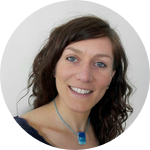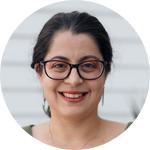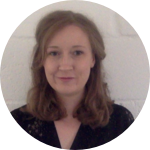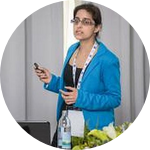About This Project
Many people will experience a decline in vision at some point in their life. For many people, this may be easily corrected with glasses, but other types of vision loss are due to diseases that cannot be treated. Vision is a combination of the signal from the eye and how the brain deals with that signal. This project aims to understand how the brain understands a change in signal when you have eye disease. We hope to use this information in future to develop new low vision treatments.
Ask the Scientists
Join The DiscussionWhat is the context of this research?
This project started when two researchers realised there was a missing link between theory and clinical reality. Jasleen has noticed how adaptable some of her low vision patients are compared to others, coming up with ways to help them navigate their new visual world. This meant that two patients with the same level of retinal damage, for example, could end up with very different quality of life. This sparked the idea for this project - could we understand the strategies the patients are using, and match these strategies to success in adaptation? In the longer-term, this may help us to predict who might need additional support to adapt, or even to help boost the use of these strategies, helping everyone make the most of the vision they have.
What is the significance of this project?
Reduced visual function is incredibly widespread. For many of us, we can use corrective glasses to help maintain good levels of vision. However, this is not always the case when eye disease is present. Losing your vision can be disruptive to your life and can limit independence. However, clinicians observe that the impact on everyday life differs across patients - some seem to adapt better than others. We want to take the first steps in understanding how to 1) measure this adaptability and 2) understand the strategies patients are using to solve challenging tasks.We are testing how the brain is using the visual information coming in from the eye. You can see more about how the eye and brain interact to give you vision here
What are the goals of the project?
We aim to recruit patients with low vision to take part in a one-session experiment. At this session, we will take detailed measurements of vision using eye charts adn a visual field machine. We will then assess how the brain is processing information using 2 computer based tasks. These tasks have been designed to test two important aspects of everyday vision: visual categorisation (what type of thing am I looking at?) and visual attention (focusing on the most useful parts of our visual environment). We will then compare the results from the computer tasks and the clinical tests to see how closely the spatial map of damage predicts task peformance. For example, does low vision lead to changes in the way the information is processed or how much we pay attention to it?
Budget
This success of this project relies (as always!) on our participants. We want to make sure we can include participants from all over the UK. To do this, we would like to cover their travel expenses as much as we possibly can. To take part in the experiment we need volunteers to travel to the eye clinic in Cambridge in order to be tested on the equipment. Your money will help us to cover the travel costs to Cambridge from their home so we can try to not leave anyone out of pocket for taking part.
We will be using the data from this project to apply for larger grants to follow up on exciting outcomes - we hope that this will be the start of a new and fruitful research programme to develop new low vision treatments regardless of the disease causing the vision loss.
Endorsed by
 Project Timeline
Project Timeline
We are currently recruiting participants and are aiming to finish data collection by June 2024 due to our ethics constraints. We are working on developing the data analysis method simultaneously to complete the analysis and writing up the project by the autumn. As many grant deadlines are in the autumn, this will allow us to apply for funding to expand this work later this year.
Apr 27, 2024
Project Launched
May 31, 2024
Finish data collection and patient recruitment
Jul 01, 2024
First overview of results - looking at patterns of behaviour within each task. How did patients vs controls differ within each task?
Sep 30, 2024
Final analysis complete - how did performance relate across tasks? Our key analyis will use the measure of retinal function to predict variability in task performance.
Oct 01, 2024
Publication of data
Meet the Team
Team Bio
Our team is a collaboration between a researcher-clinician (Jasleen) and an experimental cognitive neuroscientist (Elizabeth). We're both based in Cambridge (UK) and have spent our careers to date asking questions about how our brains help us to see. We hope to combine creative and rigorous experimental design with a clear vision for clinical relevance. We've already learnt so much from each other and we very much hope this project will be the start of an exciting period of work.
Elizabeth Michael
For many of us, vision is an effortless feature of our sensory lives. However, our visual systems work incredibly hard to deliver us this information. Whole-brain systems can come together when our environments present us with challenging inputs, such as finding a face in a crowd, or learning how to distinguish the brushstrokes of a master painter from their apprentice. I'm interested in uncovering the brain mechanisms that help our visual systems adapt to changing demands from both our environement and our own task goals. My hope is that this knowledge can help us to understand how to help individuals who experience a loss of visual function.
Jasleen Jolly
I am an optometrist and vision scientist, passionate about low vision and improving life for my patients.My research focusses on better understanding low vision from different viewpoints and using that to produce new treatments for patients.
Additional Information
We have already collected pilot data from healthy volunteers in our local area - we are ready to go with data collection for our patients! We welcome volunteers, please contact natalie.assaf@aru.ac.uk if interested. You can hear more about taking part in research here
Project Backers
- 10Backers
- 100%Funded
- $1,000Total Donations
- $100.00Average Donation



